Colombia vs Japan: VAR not needed as referee does his job, James Rodriguez gamble fails, Japan dumfound critics
Colombia 1-2 Japan: Five things we learned from the Group H opener in Saransk

Japan caused another major upset at the 2018 World Cup as they made the most of their early numerical advantage to beat Colombia Football 2-1, blowing Group H wide open and potentially affecting England’s future plans.
In just the third minute, Colombia defender Carlos Sanches deliberately handballed to block a Shinji Kagawa shot to concede a penalty and earn himself the second-fastest red card in World Cup history – with Jose Batista’s record of his first-minute sending off for Uruguay at the 1986 World Cup remaining safe for now.
Kagawa stepped up to convert from the spot and put Japan into the lead, but Colombia managed to get back on level terms before the break as Juan Quintero rolled a smart free-kick under the Japanese wall to beat goalkeeper Eiji Kawashima at his near post.
With the momentum now on their side, Colombia sent on a James Rodriguez who was nursing a calf knock and quickly found themselves behind as Japanese striker Yuya Osako headed home Keisuke Honda’s corner.
The result shakes up Group H given that Colombia were expected to breeze through the group and face England in the last-16 if the Three Lions finish second in Group G – meaning that Gareth Southgate’s side could now be looking at Japan, Senegal or Poland as potential opponents if their group goes to form.
Here’s five things we learned.
Who needs VAR?
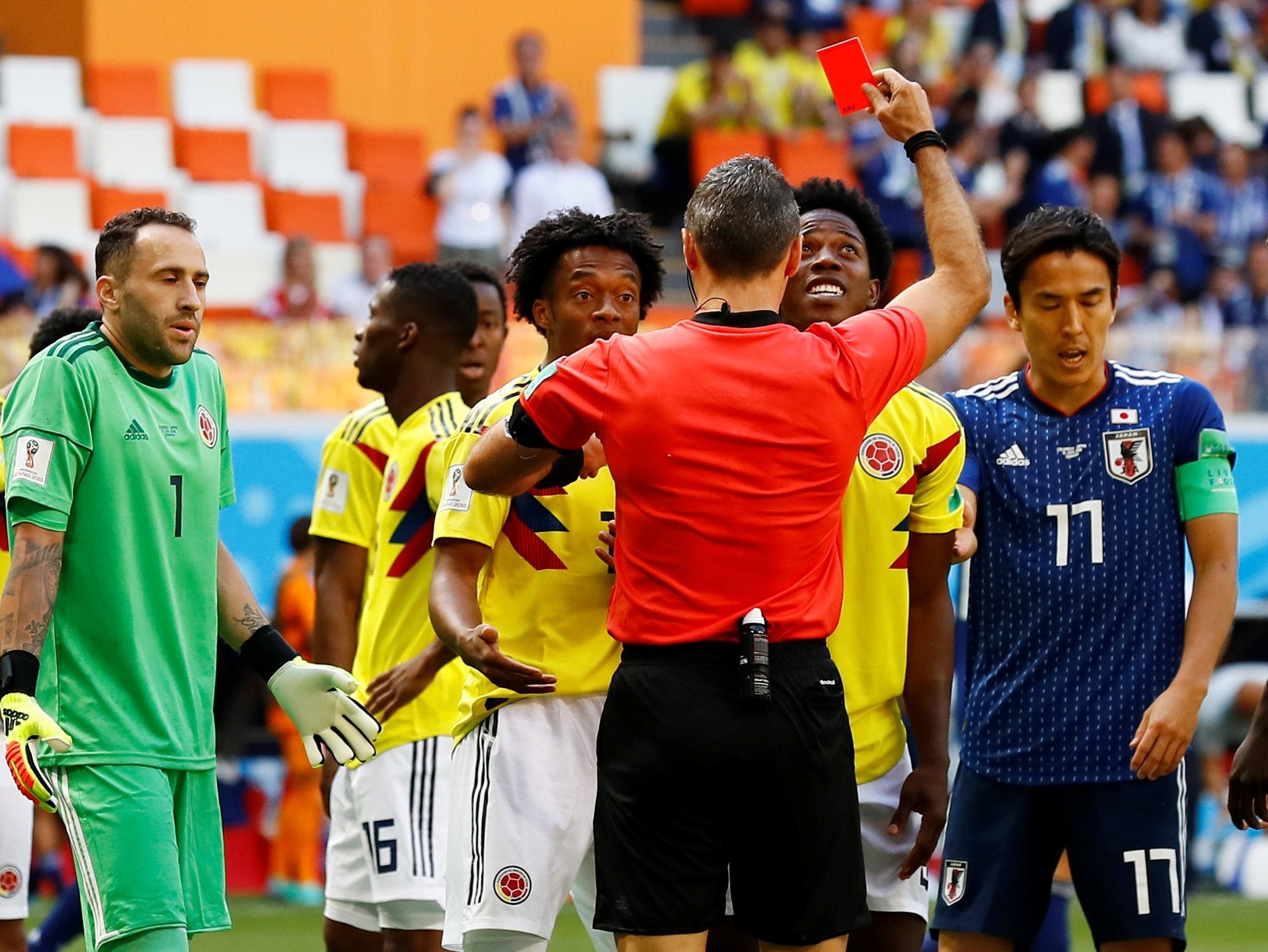
In fairness, they don’t come much easier. Carlos Sanchez – of former Aston Villa fame – felt it necessary to prevent a clear goalscoring opportunity just three minutes into the match as Shinji Kagawa shot from the edge of the area. With no David Ospina at home, you’d back the Borussia Dortmund midfielder to find the back of the net, but with the risk of reducing your side to 10 men for 86 remaining minutes Sanchez should have known better than to deflect the ball away deliberately with his arm.
Referee Damir Skomina will have been a relieved man. Given the level of scrutiny that has been on officials and their use of the Video Assistant Referee [VAR] so far this World Cup, this decision was about as straightforward as they come. The offence took place well inside the penalty box, the crime more than worthy of a straight dismissal, and Skomina duly obliged by wasting little time to give Sanchez his marching orders.
Job done.
Chelsea were wrong on Salah, but right on Cuadrado
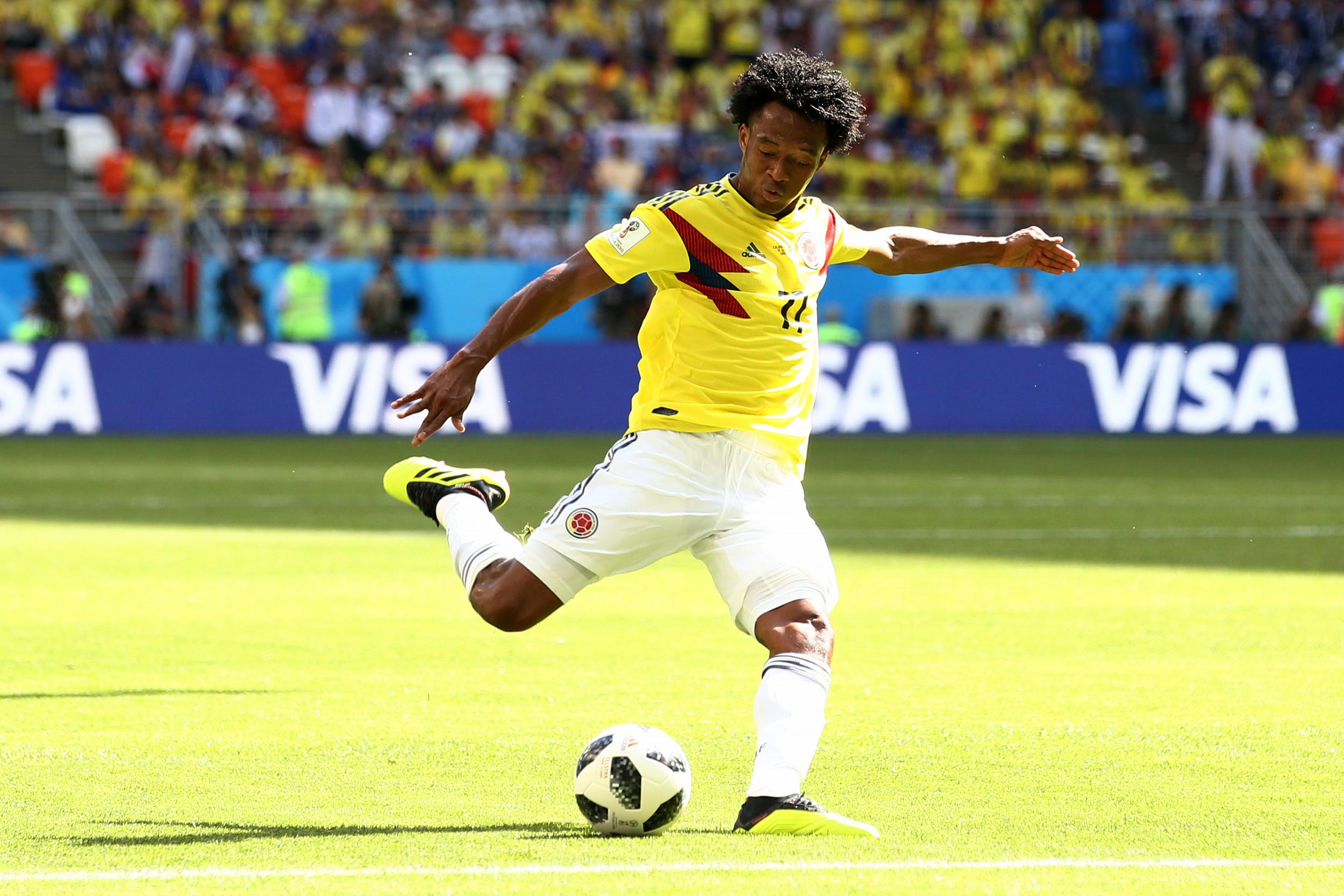
Juan Cuadrado may have been the unfortunate sacrificial lamb as a result of Sanchez’s red card, but even in the 31 minutes that he was on for, he showed exactly why Chelsea were willing to cut their losses on him last year.
The 30-year-old may have the pace to leave defenders for dead, but two often he broke away down the right wing and promptly lost control of the ball. For a man paid to be good at exactly that, it leaves a lot to be desired.
Much was made of Cuadrado in the same way that Mohamed Salah was shelved by Chelsea without being given a chance. Salah went to Italy, rebuilt his reputation and found his role in a style that is now being richly rewarded at Liverpool, but for Cuadrado the move to Italy is where the similarities stop. His time at Juventus has very much gone the same way as this short outing – lots of promise, with little result.
Pekerman gets his James gamble wrong
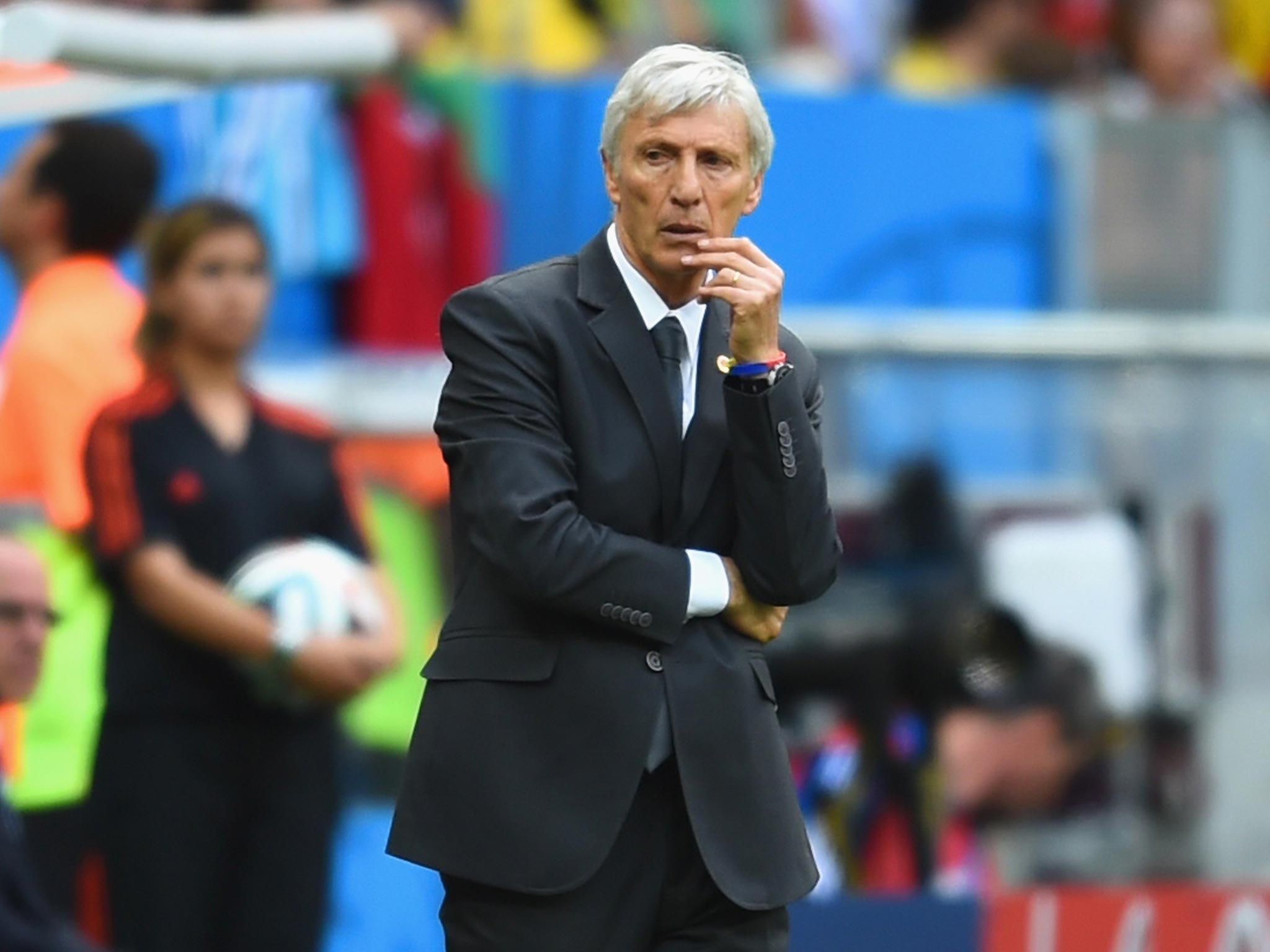
Tipped by many as potential dark horses to go all the way, Colombia did well to fight back into this match with just 10 men. But are they really a side that can threaten the semi-finals? Without James Rodriguez, it looks unlikely.
The attacking midfielder was the notable omission from the starting line ups as he was left on the substitutes’ bench nursing a calf injury. He may not have reached the highs of winning the 2014 World Cup Golden Boot in the four years since with Real Madrid and Bayern Munich, but Colombia were just missing that little something that made them so dangerous in Brazil.
With the score poised at 1-1, manager Jose Pekerman gambled and replaced goalscorer Jose Quintero with a clearly unfit Rodriguez. The decision was strange in that Colombia were being dominated in possession, and shortly after they conceded the eventual winner. When Rodriguez’ big chance came in front of goal, his waited a split-second too long that allowed the defence to close him down and deflect the close-range shot over the crossbar, and in hindsight Pekerman may regret taking Quintero off.
Kawashima costs Japan – again
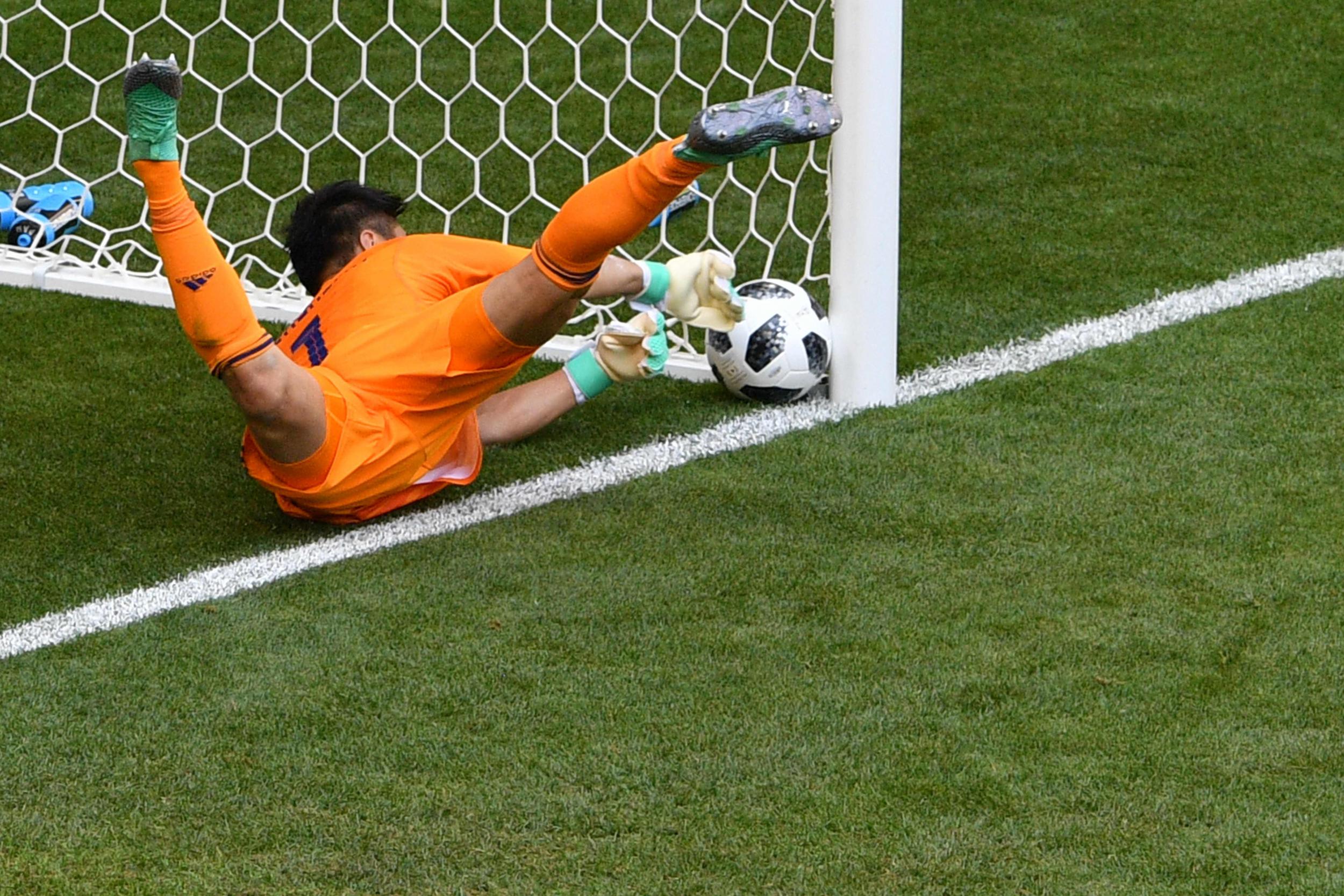
It was déjà vu for Japan. Four years ago Japan led Ivory Coast when two goals in three minutes – the second a howler from goalkeeper Eiji Kawashima allowed Gervinho’s header to slip under his body and into the back of the net.
This time around, it was Colombia’s turn to benefit from the 35-year-old’s mistake. Juan Quintero’s free-kick shortly before half-time was clever in itself as he struck the ball under the wall, but it wasn’t exactly the hardest-struck shot of the tournament and should really have been saved. To his credit, Kawashima argued his case relentlessly, and even with the undisputable evidence that the ball had crossed the line, he still wagged his finger in defiance. If only his goalkeeper was as convincing.
Don’t believe what you’ve heard about Japan
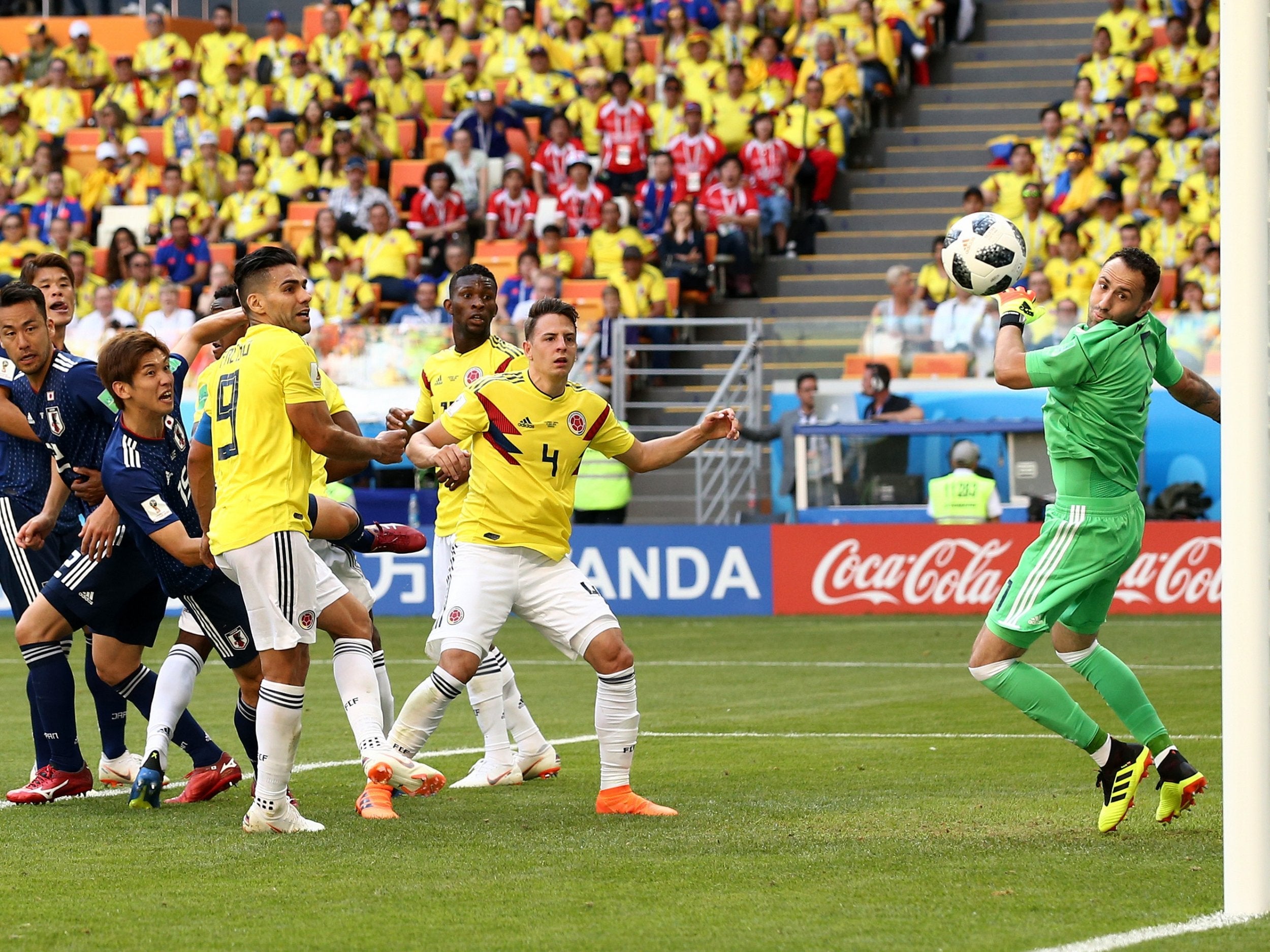
Not the same team, sacked their manager 11 days before the World Cup began, Group H cannon fodder – all sentences that have been scribbled and said in the days leading up to the World Cup. But against all expectations Japan were actually quite fun to watch.
Granted they were playing for the majority of the match against 10 men, but there were phases of play that wouldn’t have looked out of place in a much better team. Yuya Osako put together two mazy runs towards the heart of the box before heading Japan back into the lead, while Shinji Kagawa looked lively throughout, and the move over the top of the defence right at the start of the match to catch the Colombian defence napping was a smart bit of play. Given the chaos that surround their build-up, don’t write them off in getting a result against Poland or Senegal.
Join our commenting forum
Join thought-provoking conversations, follow other Independent readers and see their replies
Comments